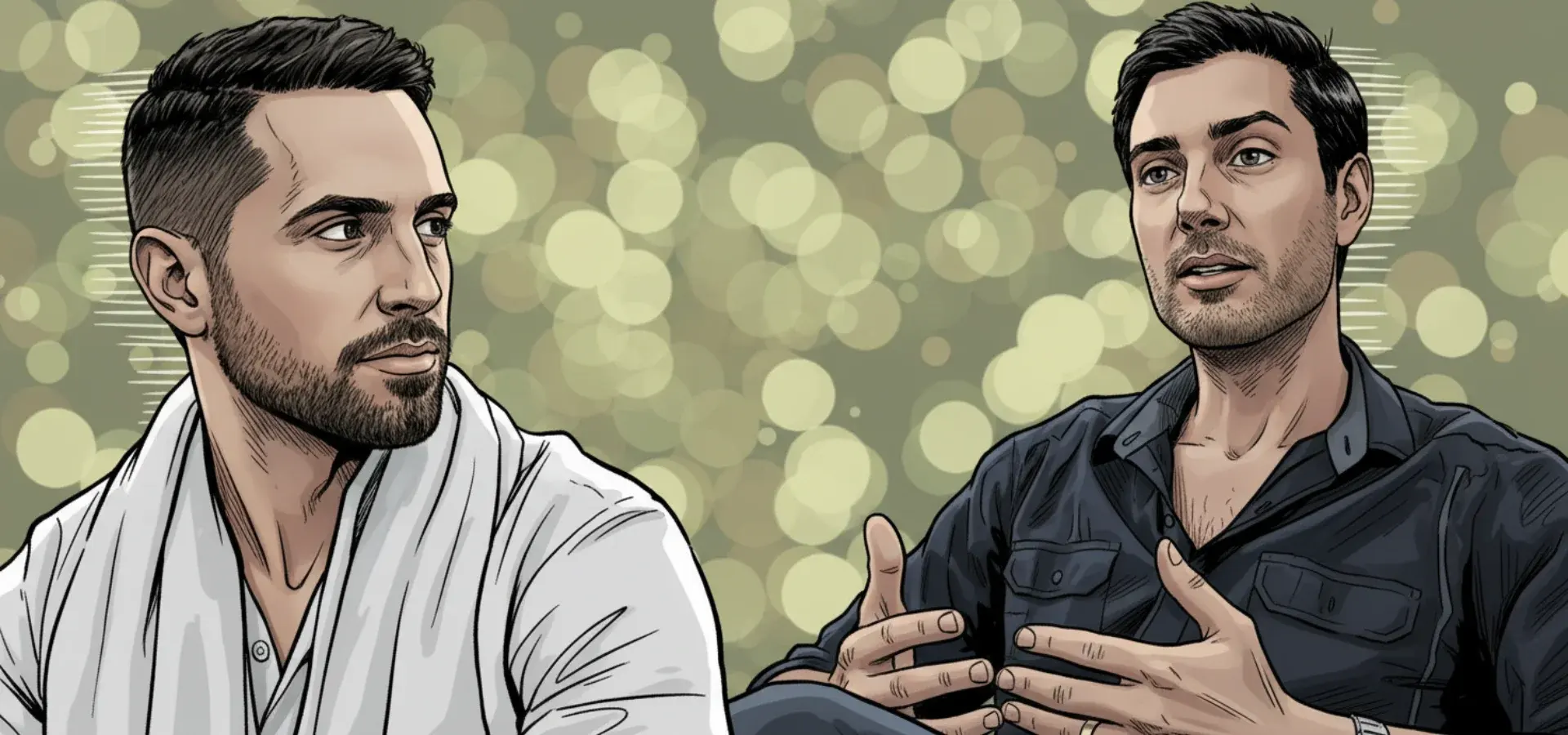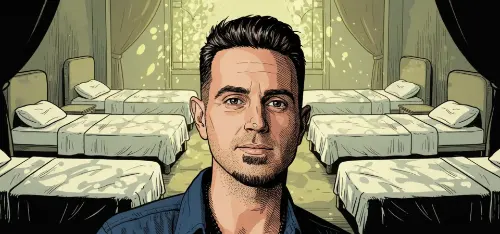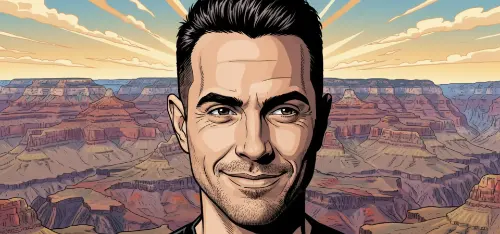No, Wade Robson Didn’t Deny Knowing the MJ Estate Existed

March 18, 2020
There’s been a widespread misunderstanding surrounding Wade Robson’s sworn affidavit. Some have taken his words out of context, suggesting he lied about knowing the Michael Jackson Estate existed. They point to the fact that he’d previously met John Branca, the Estate’s co-executor, to discuss working on a Michael Jackson-themed Cirque du Soleil show.
But that interpretation misses the actual point Wade was making. He wasn’t claiming ignorance about the Estate’s existence — rather, he was addressing his legal understanding of it, specifically about whether it could be held accountable in court for what he alleges happened to him.
In his affidavit, Wade explained:
On March 4, 2013, I met with my lawyers Gradstein & Marzano for the first time and was made aware of the fact that I could possibly file a claim against Doe 1's Estate. Prior to March 4, I did not understand or was even aware that an Estate had been opened for administration or that I could seek to make a claim. This was an enormous revelation for me because up until recently I was psychologically incapable of admitting to myself or anyone that I had been the victim of childhood sexual abuse, let alone seek redress for the psychological injury, illness and damage that was caused by Doe 1. Doe 1's sexual abuse of me as a child, the things he said to me and the trauma be caused made it impossible for me to act on my rights until now.
In this statement, Robson makes two important points. First, he wasn’t aware of the formal, legal status of the Estate or its role in handling claims such as his. And second, he was previously not in a psychological place where he could confront what had happened to him—let alone consider suing anyone. That mental barrier, combined with a lack of legal knowledge, is the basis for his claim that 2013 marked the first time he realised he might have a path toward justice.
This clarification is vital, especially when considering claims that Robson had somehow lied or contradicted himself. It’s true he had previously interacted with John Branca, one of the executors of Jackson’s Estate, in relation to Cirque du Soleil projects. However, at no point did Robson say he was unaware of Branca’s involvement or of the Estate’s general existence. What he says is that he didn’t realise the Estate could be held legally accountable for past abuse.
This distinction between physical awareness and legal understanding became crucial in court. As discussed in post 10, Robson’s legal team filed a late creditor's claim, arguing that the time limit for such claims should be extended because Robson had only recently gained the necessary “actual knowledge” of the Estate’s role. Under California probate law, the statutory clock begins ticking when a claimant becomes aware that an estate has been opened and that they might be able to bring a claim.
Robson’s team argued this point by submitting the 2013 affidavit, stating that only after consulting with his lawyers did he become aware of his potential legal rights. But the judge ruled against this argument. Using the probate code and facts accepted by both legal teams, the court concluded that Robson was legally aware of the Estate’s existence—in a legal sense—as early as February 2011 or, at the latest, later that year. This meant he had exceeded the legal time frame for submitting his claim.
This issue stirred further controversy online, particularly in an exchange on Twitter between Charles Thomson and attorney John Teufel. Thomson accused Robson of lying in his affidavit, claiming he had been “pestering the Estate for a job since 2011.” Teufel responded by pointing out a key legal misunderstanding:
The exchange unfolded like this:
@CEThomson: In his 2013 sworn statement in support of his late creditor's claim, Robson claimed that he did not know that Jackson's estate existed until 2013. This was a lie. He had been pestering the estate for a job since 2011.
@JohnTeufelNYC: Don't you think it's more likely he is saying he didn't know the estate as a legal entity that could be sued by him existed? Obviously he knew MJ was dead and an entity had formed to handle his assets, which happens whenever anyone dies.
@CEThomson: Consequently, in a 2015 summary judgement, the judge rejected Robson's argument - which, according to the law on summary judgements, he could only do if he found that no rational juror could believe it.
@JohnTeufelNYC: Okay these are "undisputed facts," i e. facts agreed on by all parties. Are you a lawyer? You are misunderstanding how summary judgment works. It is not about credibility, it is about a LEGAL argument and whether alleged facts fit the law.
The debate continued:
@JohnTeufelNYC: Again I'd like to read the actual decision. Everyone who defends him uses this line, that a judge found no rational Trier of fact could believe him. I'd like to read it in context.
@CEThomson: It's not in the judgement, it's in the law. The law on summary judgements says the judge could only reject Robson's claim if he found no rational juror could believe it. By rejecting Robson's claim, the law says he was ruling no rational juror could believe it.
@JohnTeufelNYC: That's incorrect. It is not that no rational juror could believe it. It's that no rational jury could find in his favor even given the truth of his statement. It's a LEGAL standard, not a fact finding one. And also, that's not how people are using the non existent "quote."
This legal point is critical. In summary judgment rulings, judges don’t make credibility assessments—that’s what juries are for. Instead, they determine whether the law supports one party’s position, even if all of the other side’s claims are assumed true. The judge did not rule that Robson was lying, only that—even if everything he said were accurate—the legal standard for timely filing had not been met.
Interestingly, Charles Thomson later deleted his tweets discussing this matter. While his posts suggested Robson’s statements had been legally disproved as lies, the reality is more complicated. The court didn’t make a ruling on whether Robson was telling the truth or lying—only that his understanding of the Estate and the timeline didn’t meet the requirements for a late claim under California law.
This is where legal terminology and psychological nuance intersect. Robson was clearly trying to explain that he had a psychological block about recognising the abuse, and only once that block lifted could he even begin to think about taking action. The law, however, makes no special allowance for psychological barriers unless they reach the threshold of incapacity, which wasn't the legal route pursued here.
So, to summarise: Robson’s affidavit never denied that Jackson’s Estate existed. Instead, he explained that he didn’t grasp its legal role or realise it could be held liable for the alleged abuse until 2013. That’s a meaningful distinction—one that helps explain both his affidavit and the court’s decision to reject his late claim on legal grounds, not on the basis of dishonesty.
With permission, the following article was translated and enhanced from The Truth about Michael Jackson.





